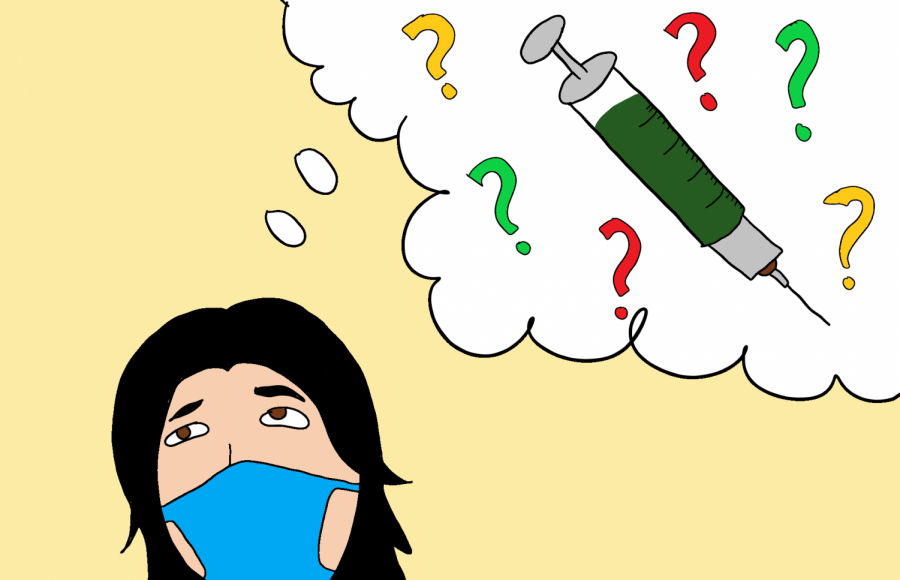COVID-19 Vaccine Myths Debunked
Now that the COVID-19 vaccine is authorized for distribution, many myths are circulating about what vaccine, some are going as far as to say that the COVID-19 vaccine could cause potential harm. In a world devastated by the pandemic, what information is accurate?
The U.S. Food and Drug Administration (FDA) issued the first emergency vaccine distribution on Dec. 11, 2020. As of Feb. 1, 26.5 million Americans have received one or both doses of the current vaccines, according to data compiled by the Bloomberg Vaccine Tracker. People with a higher risk of being infected are on the priority list, which depends on the age and occupation of the recipient, according to the Los Angeles Times.
After nearly a year of seeing COVID-19’s effect on everyday life, a spark of joy in the form of a vaccine promises safety. Many people, however, remain concerned about the vaccine. So what’s the actual truth behind these myths?
Myth 1: If a person has already had COVID-19, then they don’t need the vaccine.
Some may think that if the body was exposed to COVID-19 and had a chance to recover, then the person can never get infected again. However, a study conducted called SARS-CoV-2 Immunity and Reinfection Evaluation concluded that the virus reduces the risk of reinfection by 83% in the next five months, meaning that there is still a percentage where reinfection is possible. The infection does not give the host ultimate immunity from getting infected again, and a vaccine is still recommended by the CDC to those already infected to ensure safety.
Myth 2: The vaccine can infect the recipient with COVID-19 instead of preventing it.
This reasoning comes from how the vaccine stimulates the body’s white blood cells reaction to the disease it is trying to prevent. This is false because the body is reacting to the vaccine itself, not the disease.
“The COVID-19 vaccine does not contain the SARS-Co-2 virus, so you cannot get COVID-19 from the vaccine,” infection and vaccine distribution experts Gabor David Kelen M.D. and Lisa Lockerd Maragakis, M.D. said in a story by Johns Hopkins Medicine.
Myth 3: The COVID-19 vaccine was rushed, so it is unsafe.
The development of the COVID-19 vaccine began with the first cases in January 2019, according to vaccine study companies BioNTech and Moderna. Although a year is seemingly a short amount of time to skeptics, all trials and testing steps were not skipped, but rather overlapped to be faster. Since the virus has had a world-wide impact, these companies had no problem with resources as governments paid in advance during the trials.
According to BioNTech, Germany’s Federal Ministry of Education and Research gave a $444 million grant in order to make the vaccine more efficient.
“The funding is an important contribution to accelerate the development and scaling up of our Covid-19 manufacturing capacities in Germany,” BioNTech CEO Ugur Sahin said in an interview with Medcity News.
Your donation will support the student journalists of Portola High School. Your contribution will allow us to purchase equipment and cover our annual website hosting costs.

Sidra Asif is the Back Page Editor and Social Media Manager for her third year on the Pilot. Outside of creating content for the newspaper, you can find...

Krisha Konchadi is the front page editor this year on the Portola Pilot. Along with editing and creating the front page, she loves making graphics and...




